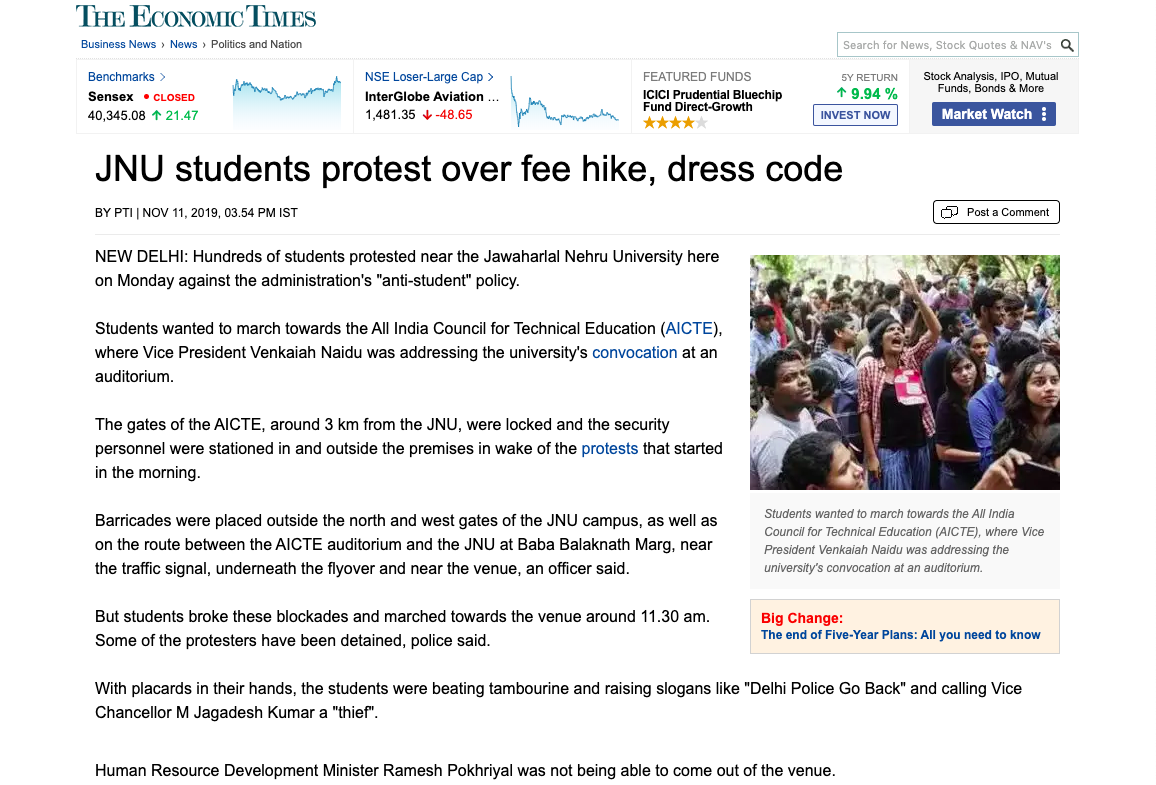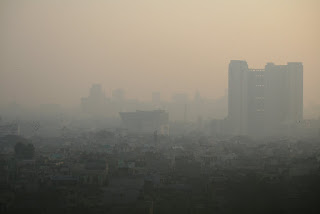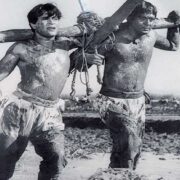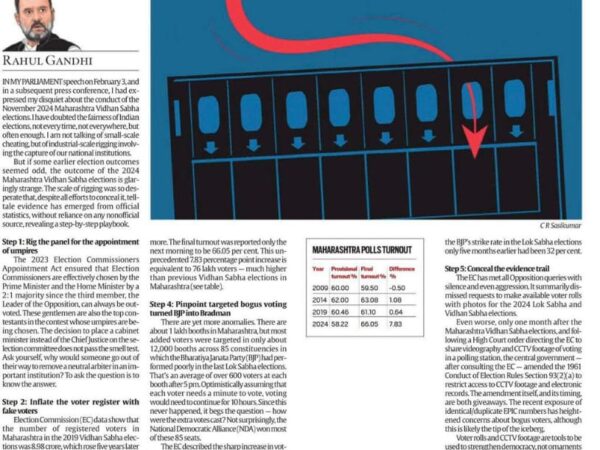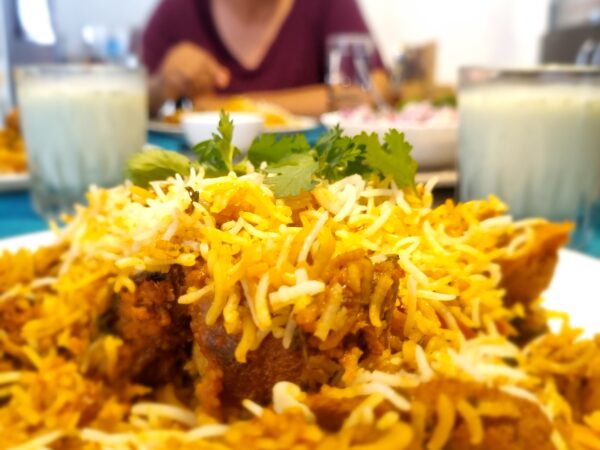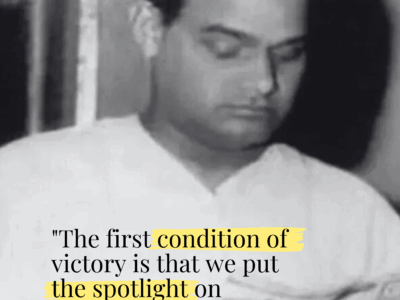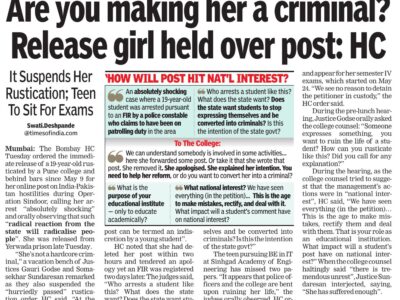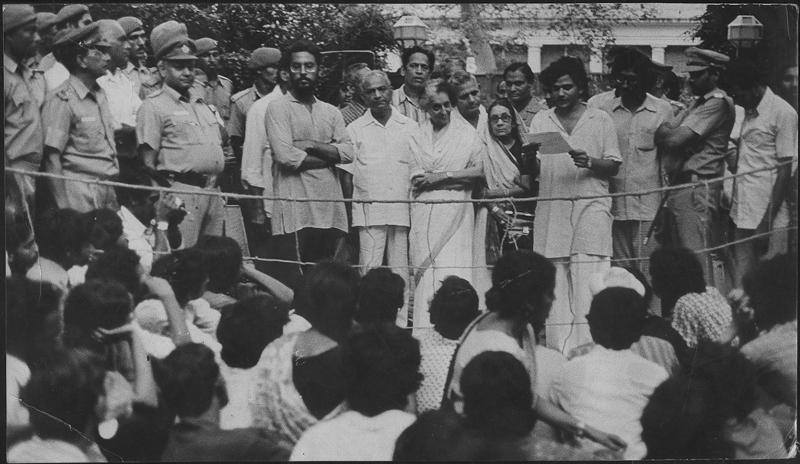 JNU seems to be constantly in the news. Whether it is the various awards of excellence it receives, or the heights the alumni reach in their career post-JNU, or the allegations of anti-national or amoral activity in campus, or the government’s constant but eventually doomed efforts to reign in the students. By the way, this isn’t new. Ever since it was established in 1969, this has been a hotbed of rebel students taking on the establishment.
JNU seems to be constantly in the news. Whether it is the various awards of excellence it receives, or the heights the alumni reach in their career post-JNU, or the allegations of anti-national or amoral activity in campus, or the government’s constant but eventually doomed efforts to reign in the students. By the way, this isn’t new. Ever since it was established in 1969, this has been a hotbed of rebel students taking on the establishment.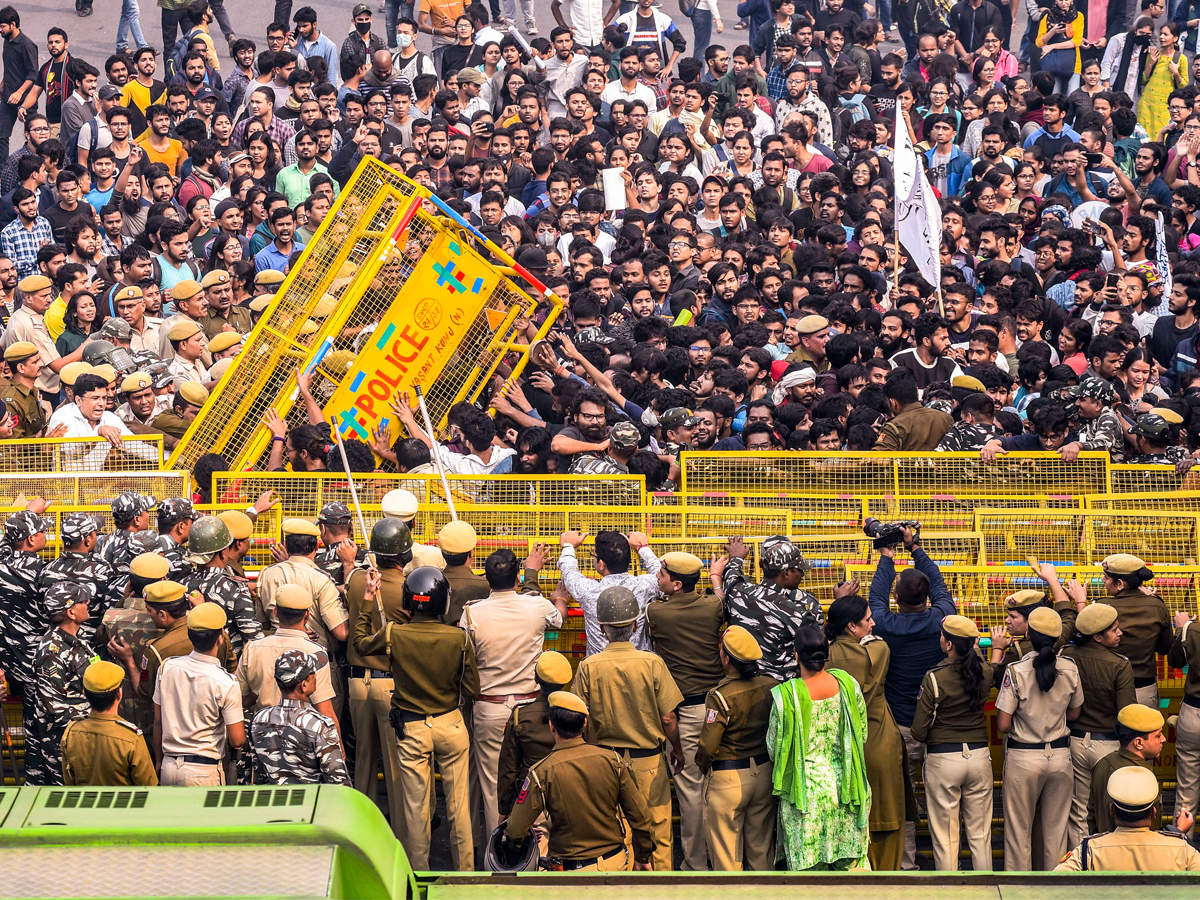 And to the privileged middle class, that is intolerable. They are incredulous that someone who is living off their largesse should have an opinion of their own! That these people shouldn’t know their place and station in life. That they should not lower their gaze when in the presence of their generous benefactors. “अपने बाप से बराबरी करोगे? तो क्या मां से संबंध रखोगे?” is the shocking rhetorical argument in their middle class minds. These sentiments are the same ones they have with their own children. And the methods to correct this delinquent behaviour are also similar: talk of discipline and comparisons with soldiers, threats of physical violence, actual violence, and finally cutting them off the money. The argument always is, “As long as you stay in my house and eat my food, you follow my rules. No rebellion will be tolerated.” Apparently, the release from this will only happen “when you grow up”, which, as we all know with Indian parents (even if second generation NRIs) is another way of saying “never”.
And to the privileged middle class, that is intolerable. They are incredulous that someone who is living off their largesse should have an opinion of their own! That these people shouldn’t know their place and station in life. That they should not lower their gaze when in the presence of their generous benefactors. “अपने बाप से बराबरी करोगे? तो क्या मां से संबंध रखोगे?” is the shocking rhetorical argument in their middle class minds. These sentiments are the same ones they have with their own children. And the methods to correct this delinquent behaviour are also similar: talk of discipline and comparisons with soldiers, threats of physical violence, actual violence, and finally cutting them off the money. The argument always is, “As long as you stay in my house and eat my food, you follow my rules. No rebellion will be tolerated.” Apparently, the release from this will only happen “when you grow up”, which, as we all know with Indian parents (even if second generation NRIs) is another way of saying “never”.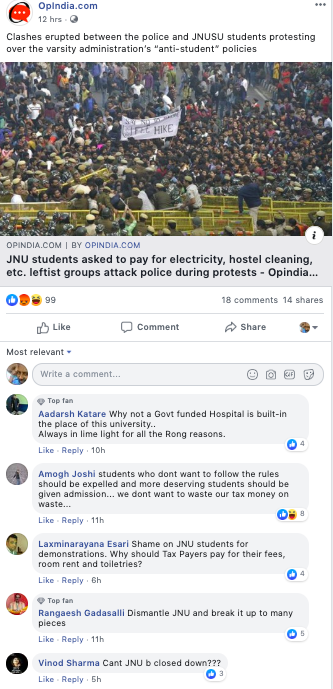 The middle class is angry at them because they think that these people should be more grateful for their generosity and display such gratitude from time to time as demanded by them, be it via constant acknowledgment & self-flagellation, or prostration & acquiescence to displays of loyalty to the middle class and their gods (which include the nation-state). And while this anger was exposed only in private gatherings and within friends & family once, it is since 1992 that it found a political voice, which was strengthened to a large degree by the opening up of the economy (and hence, the sharp increase in prosperity and access to resources that further allowed them to increase the height of the wall intervening their lives and those of the riff-raff) at about the same time, by some divine coincidence, and resulted in the emergence of the platform (the popularity of the extreme right political party and its attendant “non-political” arms) through which such power over these spoilt children could now be exercised. In the process, it would seem that the middle class has made peace with the harm this would cause to the economy, ecology, future generations (the very same “kids” they seem to concerned about), general social fabric, and even their own livelihoods and safety as part of acceptable collateral damage. They have even stopped caring for the safety and continuity of the exact same divine, god-like nation-state Motherland they worship and conduct these sacrifices in the name of. The mad, rabid, insane, unseeing, unthinking focus on teaching these people their place, whether they be Muslims, Kashmiris, immigrants, leftists, centrists, artists, writers, film-makers, journalists, North-Easterners, South Indians, Dalits, Bhangis, Mahars, tribals, SCs, STs, Mullahs, Pakistanis, Arabs, Mughals, Uzbeks, Afghans, Persians, Bangladeshis, Africans, Sikhs, Madrasis, Christian missionaries, Italians, or whoever is either not part of the in-group of People Like Us (PLU) or who have or has wronged us or we suspect or think have or has wronged us absolutely any time in the past 5,000-odd years, is an all-consuming fire that the middle class has stopped caring for, even when it is burning their own homes and families to ashes in their pursuit for vengeance and self-validation.
The middle class is angry at them because they think that these people should be more grateful for their generosity and display such gratitude from time to time as demanded by them, be it via constant acknowledgment & self-flagellation, or prostration & acquiescence to displays of loyalty to the middle class and their gods (which include the nation-state). And while this anger was exposed only in private gatherings and within friends & family once, it is since 1992 that it found a political voice, which was strengthened to a large degree by the opening up of the economy (and hence, the sharp increase in prosperity and access to resources that further allowed them to increase the height of the wall intervening their lives and those of the riff-raff) at about the same time, by some divine coincidence, and resulted in the emergence of the platform (the popularity of the extreme right political party and its attendant “non-political” arms) through which such power over these spoilt children could now be exercised. In the process, it would seem that the middle class has made peace with the harm this would cause to the economy, ecology, future generations (the very same “kids” they seem to concerned about), general social fabric, and even their own livelihoods and safety as part of acceptable collateral damage. They have even stopped caring for the safety and continuity of the exact same divine, god-like nation-state Motherland they worship and conduct these sacrifices in the name of. The mad, rabid, insane, unseeing, unthinking focus on teaching these people their place, whether they be Muslims, Kashmiris, immigrants, leftists, centrists, artists, writers, film-makers, journalists, North-Easterners, South Indians, Dalits, Bhangis, Mahars, tribals, SCs, STs, Mullahs, Pakistanis, Arabs, Mughals, Uzbeks, Afghans, Persians, Bangladeshis, Africans, Sikhs, Madrasis, Christian missionaries, Italians, or whoever is either not part of the in-group of People Like Us (PLU) or who have or has wronged us or we suspect or think have or has wronged us absolutely any time in the past 5,000-odd years, is an all-consuming fire that the middle class has stopped caring for, even when it is burning their own homes and families to ashes in their pursuit for vengeance and self-validation.